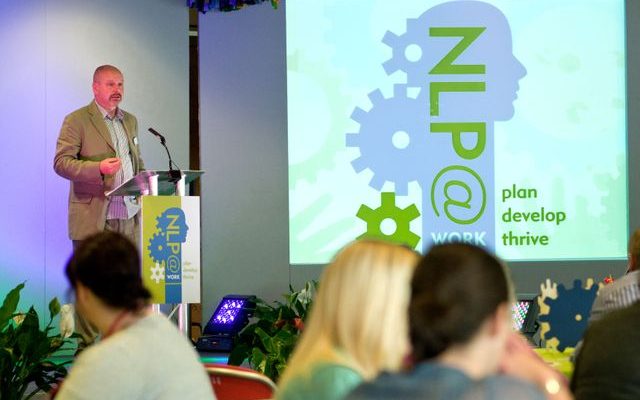Well, I’ve had some time to reflect on my experience at the ANLP International conference – the first one I’ve presented at – and I thought I’d share some of the insights I picked up over the weekend.
I arrived on Saturday, checked in and went to get a cup of tea, and was approached by the only other person standing there, who introduced himself and told me he was looking forward to my presentation the next day. He’d recognised me from my photo in the conference planner and wanted to say hello. Everyone at the conference was really friendly, and I had lots of very interesting conversations at the event and afterwards.
What I learned
I had decided to watch all the presentations in the Business Strand as my focus on NLP is business applications but after the first session I decided that I should go to the sessions I wouldn’t normally focus on, to see what learning form these I can apply in my practice. Learning Point number one: step out of your comfort zone.
I had a great time in the ‘Mindfulness Based Inner Repatterning’ session by Tania Prince, where I learned how to get rid of my Imposter Syndrome which was really useful, given that it was talking loudly in my ear that morning. I wasn’t sure what to expect from the name of the session, but I got a lot out of it. Learning Point number two: don’t let jargon get in the way of learning and big change. Often people can be put off by NLP, as it can all seem a bit mysterious, but it’s really just about using well-researched, tested tools and techniques to become more effective in what you do – simple.
I attended a session with Peter Rolland on NLP and the Emotional Intelligence model which was good revision of Emotional Intelligence and the overlap between EI and NLP. Learning Point number three: it’s good to re-visit things you learned a long time ago, as it allows you to find new ways of applying that learning as you have developed your thinking over time.
Robert Dilts is a hero of mine and I use the Logical Levels model in most of what I do – it’s at the core of my Strategic Planning tool, my coaching approach and my Cultural Change models. Learning Point number four: lots of tools and models can be applied to new areas and can add value. Knowing your desired outcome is the key.
I watched Dipti Tait demonstrate a really effective way to utilise a client’s words to help them change beliefs and behaviours in her ‘How Free Flow Trance enhances your toolkit’ session. Learning Point number five: using the words a client uses really demonstrates understanding and helps to lead them to a win/win outcome.
The dreaded Powerpoint failure and how to deal with it
Then I was into my presentation where I started with Learning Point number six: practice what you preach – and always over-prepare for a presentation. The laptop I was using for my presentation had my Powerpoint file and the video I wanted to use stored on it. I’d checked it that morning and everything was fine – no updates to take away all my preparation time and I was confident everything was OK. It wasn’t.
The laptop refused to start windows and the IT guy couldn’t make it work whatever he tried. The 20 minutes prep time I had was rapidly running away when someone from the hotel found a spare laptop and I was able to load my presentation from the flash drive I had brought with me just in case.
This is something I always tell delegates on the Presenter’s Toolkit course to do. I also had it on Google Drive so I could download it if the flash drive was broken or lost. If Google Drive didn’t work, I could have done the presentation without Powerpoint at a push.
After that excellent opportunity to practice my state management, the session went really well and I got some really positive feedback. I also sold a few copies of my books, which was great.
Overall, the key learning I got from the Conference was: after 23 years of learning and using NLP I am pretty good at it, and I’m well respected by the NLP professionals who I met. That said, I’ve still got lots of opportunity to improve my knowledge, skills and understanding.
It also brought home to me how effective and useful the presuppositions of NLP are – especially this piece of advice:
‘You have all the resources you need to achieve your goals. There are no unresourceful people, only unresourceful states.’
I certainly feel in a much more resourceful state than before I went.
I also enjoyed talking to some of the 400+ people who were at the Conference and I’m already planning to go next year, hopefully to present again.
Takeaways:
- Try new things and explore areas outside of your focus: they could give you a new insight into what you do
- Don’t let your preconceived ideas of what something might be like stop you from trying it
- Using a client’s words helps you connect with them and lead them to a positive outcome
- Lastly: always have a back-up when you’re giving a presentation – and be prepared to deliver it without a Powerpoint if you have to!
